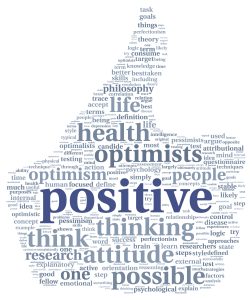 If you’ve ever worked with me or read my book, you know I’m a self-talk maniac. What you say to yourself impacts all the choices you make, positive and negative.
If you’ve ever worked with me or read my book, you know I’m a self-talk maniac. What you say to yourself impacts all the choices you make, positive and negative.
Sadly, we are a culture of negativity. Even the purpose of marketing is to make you consider what is negative, missing or unsatisfying with your life — and it’s everywhere, pummeling you with messages about what you’re lacking.
Yes, we value kindness and generosity according to research like that cited in Character Strengths and Virtues; however, our language is laced with limiting, diminishing, joy-draining words for emotion. Of the 24 most common “emotion” words in English, only six of them are positive!
Switch, the newest book from Dan and Chip Heath (cited in an earlier blog), shares that in an “exhaustive study, a psychologist analyzed 558 emotion words—every one that he could find in the English language—and found that 62 percent of them were negative versus 38 percent positive.” That’s a pretty shocking discrepancy, wouldn’t you agree? They add, “Eskimos have 100 different words for snow. Well, it turns out that negative emotions are our snow.”
That negative talk saps our energy, determination, tenacity and creativity. It also breeds dissatisfaction and hopelessness, at work and at home.
So pay attention to your self-talk. Tune into your inner radio station and decide if you’re listening to the channel that most fuels and encourages you. It takes practice, and it’s worth the time you put into it. When you become aware of your negative tone and emotional words, you can choose to change them to more positive, encouraging, proactive words. It’s the truth behind the quote attributed to Henry Ford, “Whether you believe you can do a thing or not, you are right.”
Listen to how you talk to yourself; that will tell you ahead of time whether you will accomplish your goal, change your health, connect with other people or be successful in your endeavor. It’s your choice.
Leave a Reply